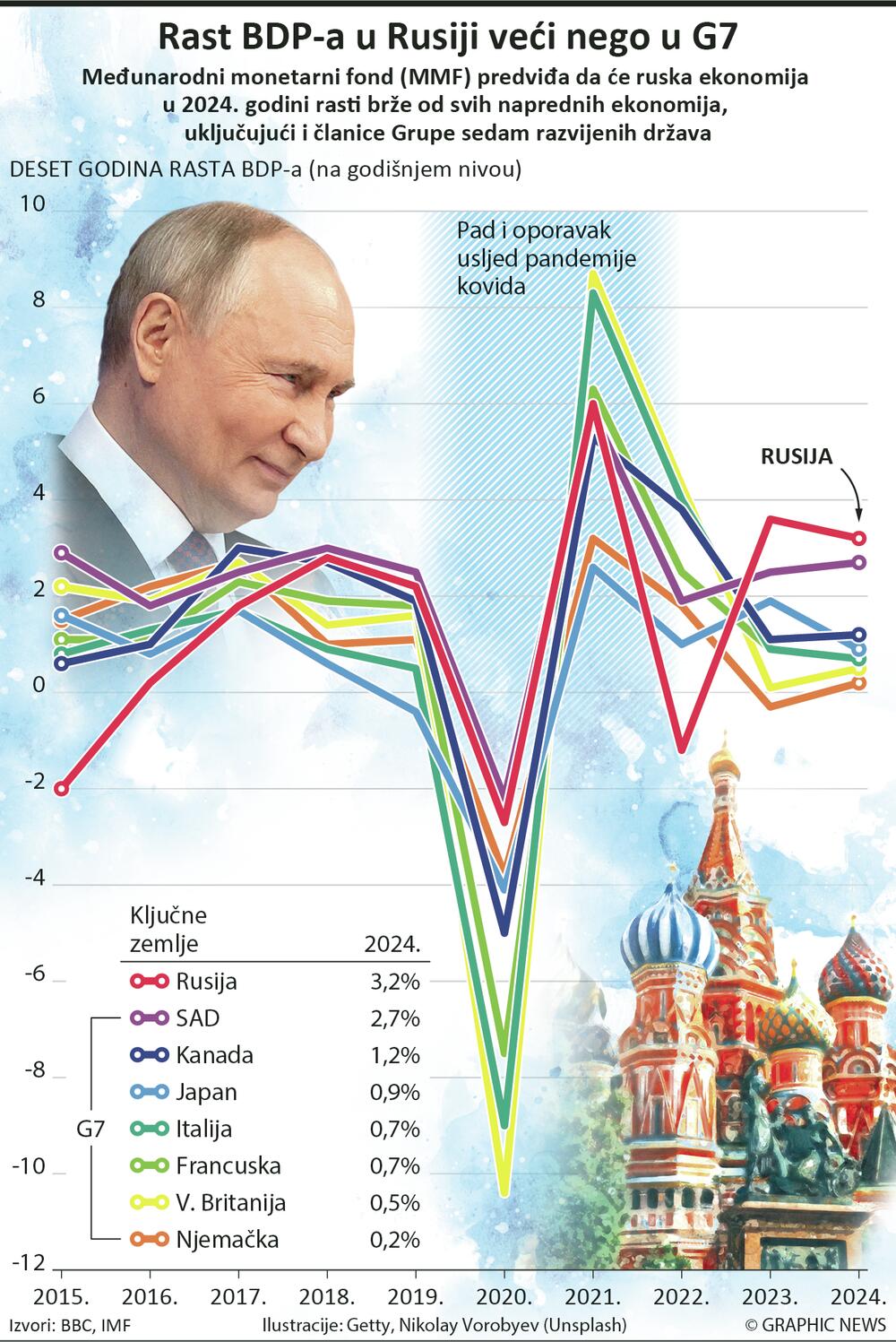The International Monetary Fund predicts that the Russian economy will grow faster this year than all other developed world economies, including the United States, the BBC reported.
The IMF expects the Russian economy to grow by 3,2 percent this year, which is significantly higher than Great Britain, France and Germany.
Despite the fact that the Kremlin is the target of Western sanctions due to the invasion of Ukraine, the IMF gave positive predictions for the Russian economy, and announced that although its growth will be lower in 2025, it will still be higher than the previously expected 1,8 percent. Oil exports "remained stable" and the government "maintained high consumption," which contributed to growth, according to a report by the international organization, which has 190 member states.

Investment by corporations and state-owned enterprises, as well as "resilience in private consumption" in Russia, contributed to growth along with strong oil exports, said Petji Koeva Brooks, deputy managing director of the IMF. Russia is one of the world's biggest oil exporters, and the BBC revealed in February that millions of barrels of fuel made from Russian oil are still being imported into the UK despite sanctions.
The IMF report also states that the world economy has shown "extraordinary resilience".
"Despite many dark predictions, the world avoided a recession, the banking system proved to be largely resilient, and major emerging market economies did not suffer sudden interruptions," economic experts point out.
The IMF claims that its forecasts for next year's growth in most advanced economies were often accurate within about 1,5 percentage points of the actual outcome.
Bonus video:




